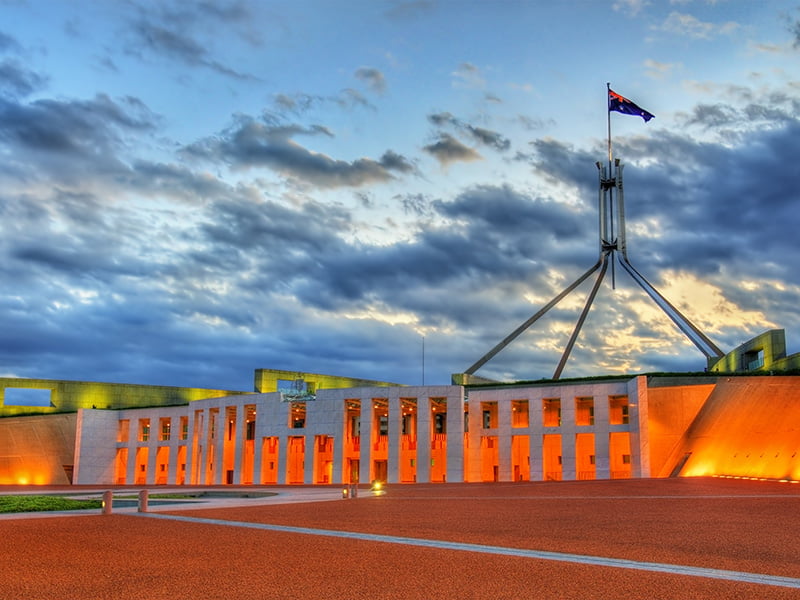There is surely no more challenging federal issue in need of urgent reform than tech procurement policy. It is the giant industry development policy lever sitting in plain sight, but which politics and cultural inertia have left virtually untouched for 20 years.
It is the strangest dynamic, and one that stems from the treasonously bad Free Trade Agreement signed with the United States in 2004 and which came into the affect the following year.
The FTA set in stone an existing cultural bias within the bureaucracy against buying local technology or using procurement budgets to build ICT capability.
It deeply entrenched the idea in government that Australia is not a developer of technology, but rather derives economic benefit by being a sophisticated user of technology. This was a Howard era mantra that remains a cultural touchstone inside the Department of Finance.
This has been a consistent roadblock to procurement reform for successive governments.
As we near the end of the last sitting week of the federal parliament for 2024 and head into an election, it is an opportunity to assess the progress of procurement reform under the Albanese government.
The result is a mixed bag of metaphors, both half-full and half empty.

That is, the Albanese government has made more progress on procurement reform than any government since the US FTA was signed. But overall the positive impact for Australian industry remains marginal.
The prevailing view among Australian tech leaders contacted by InnovationAus.com is that procurement reform is “a war won by increments”, and incremental advances have been made, and that Industry minister Ed Husic should be applauded for his tenacity.
“It would have been easy for Husic to say: ‘I’ve got the [National Reconstruction Fund] up, I’ve got the Future Made in Australia up, I can just leave the reform of procurement in the too hard basket’,” one local tech advocate said.
“But he didn’t do that. He has kept banging away inside government, advocating for change with colleagues. Husic deserves praise because he has persisted.”
The reality is that when Labor arrived in government it was met with inertia and ambivalence to pulling the lever of procurement reform to build local ICT capability, and to help build successful Australian tech companies.
The deep cultural ambivalence within the Department of Finance about Australian industry had been overlayed with the US FTA and other trade agreements and given the imprimatur of the Department of Foreign Affairs and Trade, effectively giving Finance cover to do nothing.
Australia is now significantly out of step with comparable countries in the way it treats procurement. This has become even more pronounced since the Covid pandemic and growing geopolitical uncertainty, with governments around the world focused on securing supply chains and building sovereign capability.
This was a central theme in the recent report from Insight Economics titled Improving evaluation economic impact in ICT Procurement. This report outlines in crystal clear terms just how far back Australia has fallen, and focuses on economic impact assessments, and the metrics that can be used to better understand ‘Retained Economic Benefit”.
This is where Ed Husic is understood to have focused his energy – in first understanding, and then assessing the Retained Economic Benefit (REB) of ICT procurement decisions.
Australia’s narrow focus has for 20 years been on cost, as long as the solution is fit-for-for-purpose.
But once you start throwing in considerations like how much tax will be paid in Australia, or how many jobs, or how many high value jobs, or how much training, and how much R&D – these things can completely change the equation.
And in relation to FTAs, these Retained Economic Benefit criteria are non-discriminatory, meaning they are an assessment used against any supplier, whether local or international, and thereby completely in line with trade agreements.
The federal government spends the equivalent of the $15 billion National Reconstruction Fund every two years on ICT procurement. That’s a massive lever.
It’s a scandal that these dollars are not more effectively being used to build Australia’s ICT industry, just as out peers like Canada, Britain and the United States are doing.
Canberra should be teeming with startups solving thorny tech problems for government, but it is not.
The Department of Industry is understood to have done the heavy lifting in relation to building assessment frameworks for measuring Retained Economic Benefit.
Ed Husic is said to be pressing the point hard with colleagues – but whether it is enough to overcome the deeply ingrained public service inertia, or the opposition of powerful and entrenched interests within the tech industry remains to be seen.
As an observation, it is worth noting just how alone the local tech industry is on this issue.
The Insight Economics report was commissioned by Brisbane-based ERP software firm TechnologyOne, but brought together a group of other domestic companies including Vault Cloud, Macquarie Technology Group, and Agile Digital, among others.
The Australian Computer Society was the only professional association to put its name to the report and to align with its findings.
Do you know more? Contact James Riley via Email.


Thank you James for your tenacity in exposing this appalling abduction of responsibility by the Au Government to the Australian IT industry, it is an appalling shambles. Please keep up your efforts in this area.